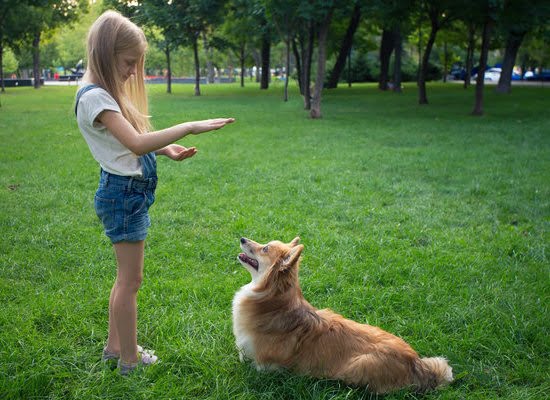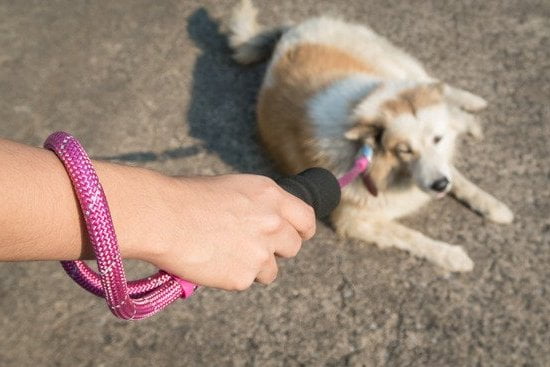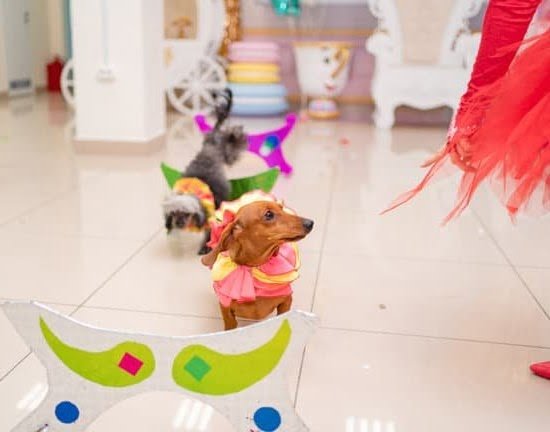Introduction
Potty training a new pet is often a challenging endeavor, even more so when you are dealing with an unfamiliar breed. As a pet owner, however, you deserve to identify the easiest small dog to potty train. While each breed will possess its own peculiarities, there are several that consistently exhibit behaviors which make them ideal for potty training. Breeds such as the Shih Tzu, Pomeranian and Chihuahua have all been known to take well to housebreaking relatively quickly.
Shih Tzus tend to be one of the easiest breeds to housebreak due to their eagerness to please their owners and strong desire for routine. This means they will often respond well when provided with consistency and repetition during training sessions. The same is true of Pomeranians; these dogs can often pick up instructions quickly and have an active intellect that makes them eager learners in potty-training exercises. Likewise, the Chihuahua is known for being generally easier than most other breeds when it comes to housebreaking since they usually prefer following a strict schedule in order make things both easier on themselves and their owners.
All three of these breeds do require extra patience while they are being trained though as it may take multiple repetitions before they begin comprehending new commands or concepts. The key words here are patience and consistency; providing your small pup with plenty of both should ensure relative success in all aspects of puppy training but especially in regard to potty-training activities. Additionally, offering positive reinforcement through gifts or praise every time your pup does something correctly can help provide an extra boost motivating them towards success!
Benefits of Potty Training for Both You and Your Small Dog
Potty training your small dog can be an extremely rewarding process for both you and your pet. Doing so will esttablish positive behaviors by encouraging your pet to eliminate in the appropriate areas and teach them healthy habits that are necessary for their wellbeing.
Not only does potty training provide you with cleaner living quarters and a better-smelling home, but it will also make going on trips with your small dog much easier as they won’t leave messes everywhere you visit. Furthermore, since one of the most common causes for surrendering pets to shelters is housebreaking issues, potty training your small pup is a great way to ensure they stay in their forever home.
The easiest small dogs to potty train tend to be those of the toy variety due to their high intelligence and ability to quickly learn new commands. This includes breeds such as Chihuahuas, Pomeranians, Maltese, Yorkshire Terriers, Boston Terriers, and Shih Tzus (just to name a few). It’s important to remember that when beginning any type of trainnig regime for any dog that consistency and patience are key; every pup will take longer or less time depending on what works best for them personally.
Defining Characteristics of Easiest Small Dog To Potty Train
The easiest small dog to potty train is typically one that is intelligent, motivated, and eager to please. Also, these dogs generally have a strong desire for consistency and stability as well as the ability to form positive bonds with humans. Most commonly, breeds such as Yorkies, Poodles, Dachshunds, Havanese, and Bull Terriers are considered among the most convenient to train. Though some stubbornness and resistance may be expected regardless of breed or size, these dogs tend to learn quickly due to their intelligence and earn rewards faster due to their active personalities. To make the process easier still, owners can utilize reward systems such as treats or playtime after successful outdoor events each time they occur. Being patient while staying consistent are key in teaching any dog potty training manners that will stick in the long run.
Common Pitfalls to Avoid When Potty Training a Small Dog
Potty training your small dog can be an exciting process. However, it’s important to remember that potty training is a gradual process based on patience and consistency. Common pitfalls to avoid when potty training a small dog include:
• Not providing enough outside time. It’s essential to provide ample opportunities for your pup to go outside and use the bathroom. Jumping ahead in the training by skipping regular outside time or assuming your pup will just “figure out when its time” can lead to accidents and stress for both of you.
• Punishing accidents instead of rewarding good behavior . Punishing your pup for having accidents can cause him or her to become scared of using the bathroom in the future, making it harder to instill good habits. Instead, focus on positive reinforcement when they use the bathroom outdoors, while ignoring any mistakes indoors.
• Not creating a regular schedule. Establishing a routine that works best for your pup is key in potty training success. Taking them out early and often as well as giving plenty of praise when they “go” in designated areas will help them learn how —and where—to do their business over time.
• Not considering breed speciality needs .Some breeds may need less frequently scheduled outdoor breaks due to smaller bladders or specific terrain preferences such as schnauzers who prefer cool grassy areas like those often found in shaded yards or nearby parks with natural ground coverings such as wood chips or pebbles rather than sidewalks or hot pavement. Check with your pet’s breeder if you have questions about their particular breed’s considerations regarding potty-training habits.
Strategies for Setting Up a Successful Potty Training Regimen
When potty training a small dog, there are certain strategies you should keep in mind to ensure success. First and foremost, you should pick an area outside that will be your pup’s designated “potty zone.” Be sure to praise your pup each time they do their business here so that they can associate the positive reinforcement with going to the bathroom. In order to reduce accidents inside, have them wear a belly band or use potty pee pads indoors if necessary. Establish a regular feeding schedule – eating at the same time every day will help in keeping their body on a set bathroom routine. Finally, be consistent when training – don’t miss any opportunities to train correctly as it can lead to confusion and regression. Reward your pup with treats, love and affection (and even playtime) when they ease themselves in their designated spot outside and don’t forget to always remain patient while they learn! By following these simple guidelines, you should soon have a small pup who is potty trained!
Remaining Consistent and Encouraging During the Potty Training Process
Potty training is an essential part of owning a dog and can be a challenge. When it comes to potty training, the most important thing to remember is to remain consistent and encouraging throughout the whole process. Consistent planning and routine are essential for a successful potty training experience. It’s important to start by getting your puppy or small dog used to the same daily schedule and eating habits. You should also establish proper toilet areas, like a designated puppy pad area if you’re indoors, or make sure they go on designated outside spots when they are outdoors. By introducing these specific practices consistently, you will gradually train your pup to understand what is expected of them when it comes to where they go when they need to relieve themselves.
In addition to consistency in daily habits, reward-based positive reinforcement is another effective way of potty training. Rewards such as praise, treats, cuddles or toys can help motivate your pup and show that going in the right place results in something good happening afterwards. Dogs learn better through positive reinforcement rather than punishment as it reinforces desirable behaviors that result in rewards for them – reducing long-term stress levels for both pet and owner alike.
Finally, patience and understanding are key during the potty training process which can take anywhere from several weeks up to several months before desired results occur. As long as you remain consistent with your puppy’s routine through scheduling meals and toileting accordingly, remain patient with mistakes along the way and give plenty of encouragement during successful moments – then you will have no problem finding an easy small dog to potty train!
Popular Breeds with Successful Potty Training Experiences
Some smaller breeds of dogs that are often easy to potty train include Chihuahuas, Yorkies, Pomeranians, Beagles, Maltese and Shih Tzu. Typically these breeds respond well to consistent training and positive reinforcement. Guide dogs such as Labradors or Golden Retrievers are also known for being easy to potty train. When beginning the process of potty training a small dog, it is important to make sure they go outside in the same spot every time and provide plenty of treats for successful trips. Depending on their age when starting out, it is likely a small dog will need several reminders and praise anytime they have gone outside where they are supposed to. Crate training can also be helpful as it helps teach puppies bladder control as not to soil their own space. Also important is avoiding too much water an hour before bedtime and creating consistent feeding times so you know your pup’s bathroom schedule based on your routine feedings.
Conclusion
Potty training a small dog can be made easier when done consistently and with the help of a few key tips. Many experts agree that the best way to potty train is by setting up a routine, cleaning up accidents immediately, rewarding successful potty trips, and using positive reinforcement. With patience and consistency, training your small dog to relieve themselves where you want them to can be easy and rewarding. Additionally, some breeds are inherently more prone to learning to potty promptly in the right spots. Small breeds known for being well-behaved and eager to please like Chihuahuas, Shih Tzus, Beagles, West Highland White Terriers, Cocker Spaniels, Toy Poodles and Yorkies are usually some of the easiest dogs to potty train. Consistency is important but with these breeds even occasional lapses should not cause too much difficulty. Ultimately, with careful attention and commitment on your part you can have a housebroken pet in no time.

Welcome to the blog! I am a professional dog trainer and have been working with dogs for many years. In this blog, I will be discussing various topics related to dog training, including tips, tricks, and advice. I hope you find this information helpful and informative. Thanks for reading!





